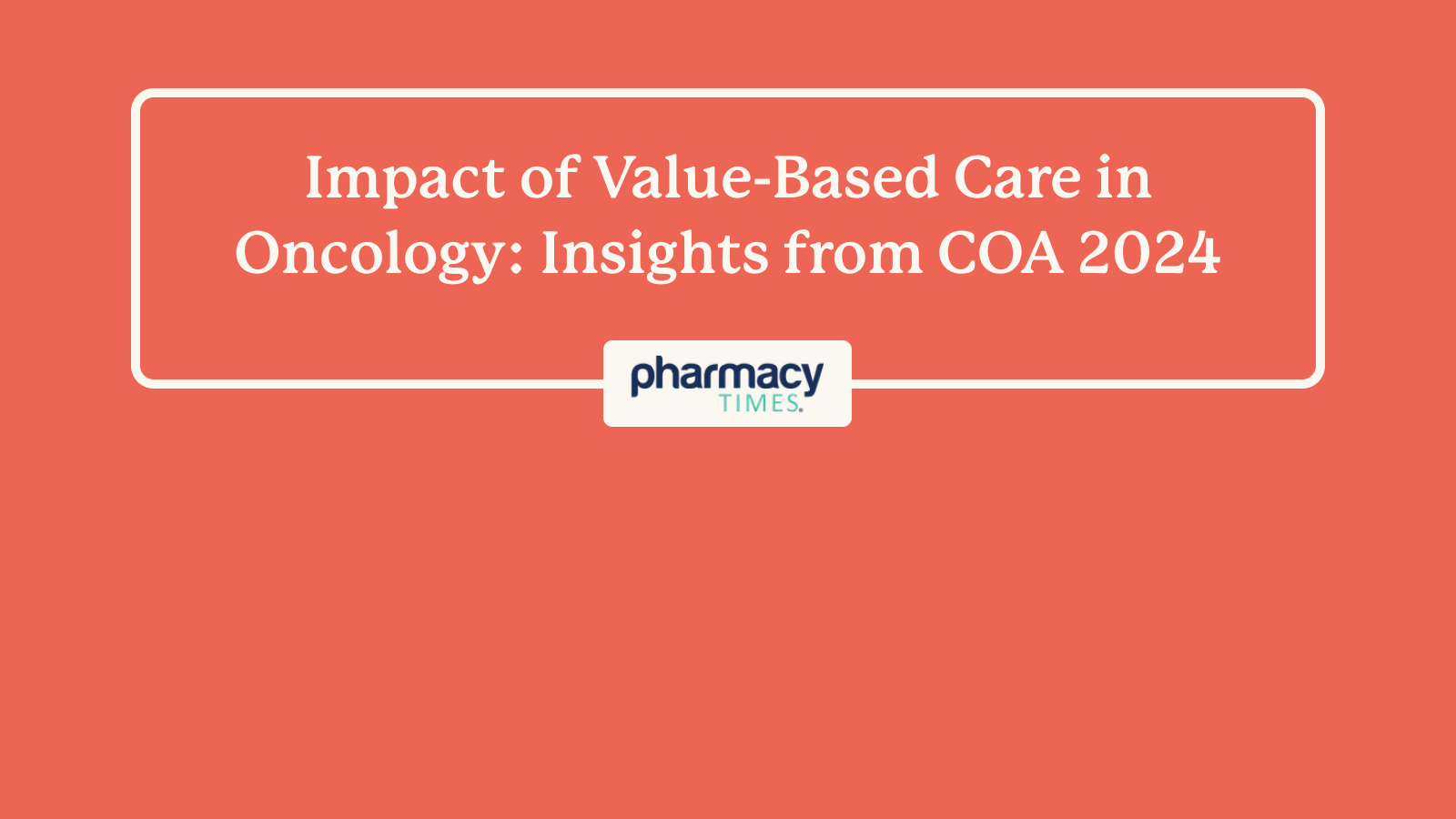Impact of Value-Based Care in Oncology: Insights from COA 2024
In an interview with Pharmacy Times® at the Community Oncology Alliance (COA) 2024 Payer Exchange, Lalan Wilfong, MD, medical oncologist at Thyme Care, sheds light on the impact of value-based care (VBC) in oncology care.
Pharmacy Times: What are the core principles that guide VBC initiatives?
Lalan Wilfong, MD: The core principles that guide [VBC], should first and foremost be the patient. We should always focus on the patient and make sure that at the end of the day, the patient gets the best therapy for them. And it is truly driven by the patient, which requires us to do an understanding and gain an understanding of what motivates the patient for care, where they are in their life, what they need from us at that period of time. So, to me, the main initiative and around [VBC] is to make sure we're delivering the right care for that patient sitting in front of us and be financially rewarded for that. Then, thinking about the total cost of care, and how do we manage the total cost of care as we deliver that care to our patients.
Pharmacy Times: How is collaboration fostered between payers and providers in a value-based care environment?
Wilfong: The biggest thing with collaboration—which I'm really excited about this meeting—is to be able to start these conversations. Truly having a conversation around that collaboration as we start to understand what motivates payers and what they need in [VBC] models, what practices need to be able to deliver [VBC], and what the patients need in order to do that, as well as we bring stakeholders together and start to really listen and understand what everybody's needs are. Then, we can start moving the field forward and continuing to move the field forward so that all stakeholders are getting what they need from [VBC].
Pharmacy Times: How do economic fluctuations (e.g., inflation, health care costs) affect the approach to value-based care?
Wilfong: Tough question, because there are a lot of factors that go into the actual delivery of care. As inflation rises, practices are feeling the pinch because we have higher wage wages and all of our materials and things we buy are more expensive. So, it's more costly to deliver that care and impacts our patients and their ability to actually seek care. Because they have limited dollars, and they have to figure out how to manage the spend on their lives differently. So, it's interesting and very difficult discussion around how do all of those things impact our ability to deliver care to our patients.
Pharmacy Times: What innovations or trends do you think will have the biggest impact on the future of value-based care?
Wilfong: I believe there are a lot of innovations and trends that will impact [VBC]. First and foremost are the drugs. I mean, we're in a rapid discovery of new drugs and new therapeutics for cancer care, which are greatly impacting the outcomes of our patient population. It is exciting, but they come at a cost, because it's very costly to deliver this targeted, molecular based therapy to our patients to drive those outcomes. I think those innovations are great and fantastic, but we're going to have to understand how we actually pay and deliver that care. In this country, I think the other big thing is technology. As we continue to advance our technology, it should help us and drive us forward in doing [VBC]. As we integrate our technologies better, as we start using artificial intelligence and large learning models to help us be able to deliver the right care to our patients, it's going to be transformative of what we're going to be able to deliver.

